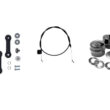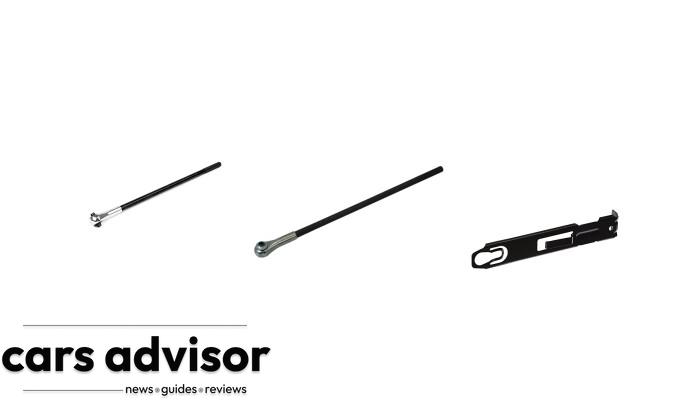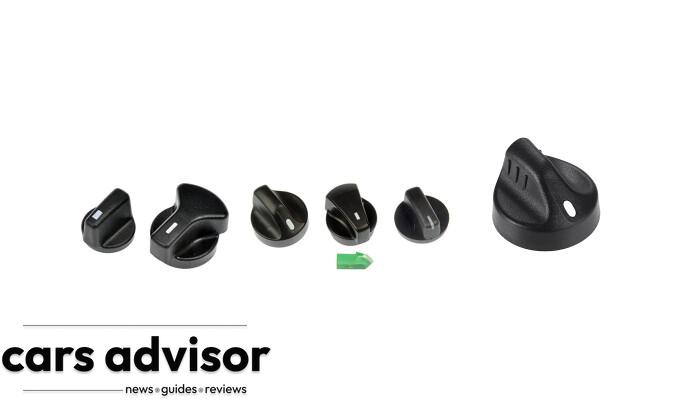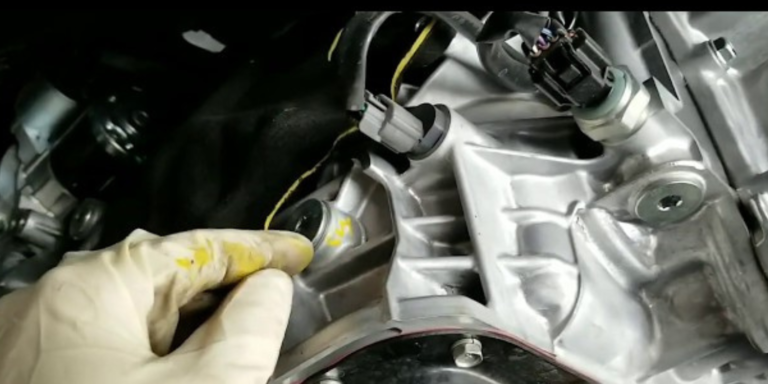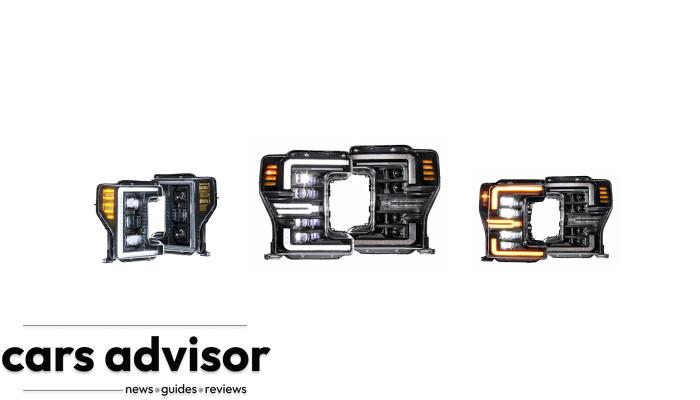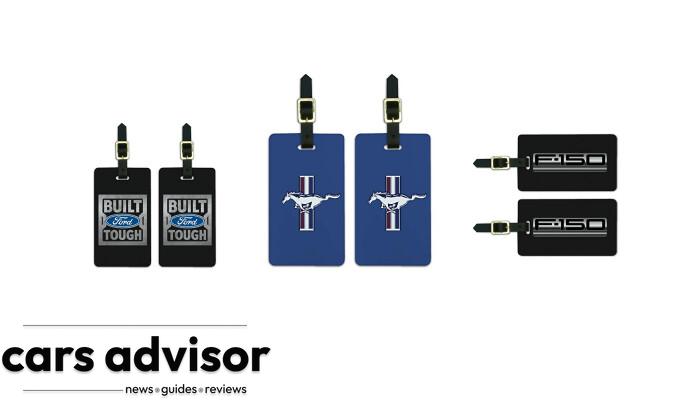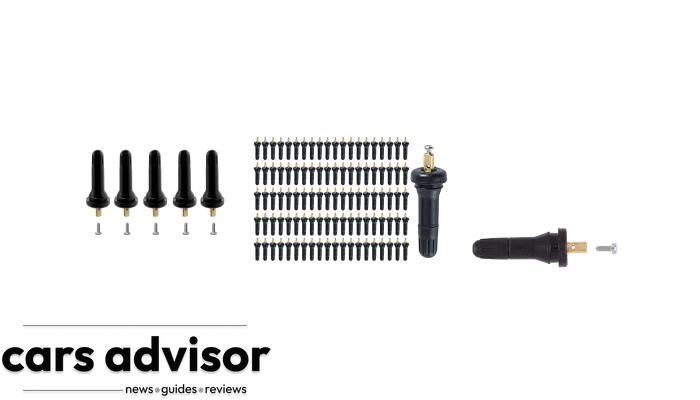Understanding Clear Fluid Leaking From Car
To understand clear fluid leaks from a car, it is important to know the possible sources and how to identify the type of fluid leaking.Possible Sources Of Clear Fluid Leaks
Knowing the various sources that could lead to clear fluid leaks in your vehicle is crucial as a car owner. By understanding these potential culprits, you can take appropriate action and ensure the safety of your car.Possible sources of clear fluid leaks include:- Coolant Leaks: The coolant system helps regulate your engine’s temperature, and a leak from this system can appear as a clear or slightly coloured liquid.
- Transmission Fluid Leaks: This vital fluid ensures smooth gear transitions, and leaks may appear reddish or brown.
- Power Steering Fluid Leaks: Like transmission fluid, power steering fluid is important for maintaining seamless steering capabilities and may also present as a reddish or brown liquid.
- Brake Fluid Leaks: Clear to light yellow in colour, this critical fluid is responsible for properly functioning your car’s braking system.
- Condensation from AC System: Water formed by condensation within your air conditioning system is typically harmless and can result in puddles underneath your vehicle.
- Windshield Washer Fluid Leaks: Although not harmful, leaks from the windshield washer reservoir can decrease visibility if left unaddressed.
Identifying The Fluid
When identifying the fluid leaking from your car, colour and consistency can be helpful indicators. Clear fluids are likely water or condensation from the air conditioner, while light brown to black fluid may indicate an oil leak.Red or brown fluids may signal a transmission or power steering fluid leak.If you’re unsure what type of fluid is leaking from your car, contacting a mechanic for an expert diagnosis is always recommended.Attempting to fix a problem without properly identifying it could cause further damage and lead to more expensive repairs.Common Causes Of Clear Fluid Leaks
Several factors, including coolant leaks, transmission fluid leaks, power steering and brake fluid leaks, can cause clear fluid leaks from a car.Coolant Leaks
Coolant leaks can be quite common and could come from a variety of sources. Coolant, also known as antifreeze or radiator fluid, helps regulate the temperature in the engine by circulating through it and cooling it down.It is typically coloured green, yellow, or pinkish-red, depending on the brand used. When coolant leaks from a car, it may result in an overheated engine or damage other components. One way to identify whether there is a coolant leak is to check for puddles underneath your car that are coloured green, yellow or pinkish-red in colour with a sweet-smelling aroma.A low coolant level in your reservoir tank might also indicate a leak within your cooling system.
One way to identify whether there is a coolant leak is to check for puddles underneath your car that are coloured green, yellow or pinkish-red in colour with a sweet-smelling aroma.A low coolant level in your reservoir tank might also indicate a leak within your cooling system.Transmission Fluid Leaks
One common cause of clear fluid leaks in a car is transmission fluid leaks. Transmission fluid is essential for the smooth operation of a car’s transmission system. It helps to lubricate the various components and keeps them cool during use.Worn-out seals, cracked gaskets or damaged torque converters can cause transmission leaks.Ignoring this problem could lead to costly repairs down the road, as running low on transmission fluid can cause significant damage to the entire system.
It helps to lubricate the various components and keeps them cool during use.Worn-out seals, cracked gaskets or damaged torque converters can cause transmission leaks.Ignoring this problem could lead to costly repairs down the road, as running low on transmission fluid can cause significant damage to the entire system.Power Steering Fluid Leaks
If you notice clear fluid leaking from your car, it could be a power steering fluid leak. This type of leak is usually identified by the smell of burning oil or rubber and can present as puddles of oily liquid beneath your vehicle.To identify whether or not you have a power steering fluid leak, check the levels in your power steering reservoir regularly.If the levels are lower than normal or if you notice any strange noises when turning the wheel, there may be a problem with the system that needs immediate attention.It’s essential to address this issue quickly since ignoring it will cause more significant issues with your car over time.Brake Fluid Leaks
One of the most concerning clear fluid leaks in a car is brake fluid. Brake fluid is necessary for your vehicle’s brakes to function properly, so if you notice it leaking, it is essential to address the issue immediately.You can identify brake fluid by its slightly oily texture and clear or yellowish color. Leaking brake fluid may be caused by worn or damaged brake lines, callipers, or master cylinder seals.In some cases, it may even indicate a problem with the ABS system.Condensation From AC System
My car has been leaking clear fluid lately, and I couldn’t figure out where it was coming from. After checking the coolant level, brake fluid, and transmission fluid levels, I realized that the leak was actually just condensation from my air conditioning system.During the operation of the AC system in a car, cold refrigerant circulates through its evaporator coil, which cools down warm air blowing over it.When this happens on a hot day, moisture in the air condenses on these coils like dew on grass in the mornings.Eventually, this condensed water drips off, leaving small puddles of clear fluids underneath your vehicle after some time.Is Antifreeze the Same as the Clear Fluid Leaking from My Car?
If you notice a clear fluid leaking from your car coolant leak parked, do not assume it is the antifreeze. While both fluids share a clear appearance, they are not the same. Antifreeze is specifically designed to regulate engine temperatures, while the fluid you see could be condensation from your air conditioning system.
What To Do When You Notice Clear Fluid Leaks
If you notice clear fluid leaking from your car, it’s important to check the fluid levels and inspect for any damage or wear; however, seeking expert diagnosis and repair is always recommended to ensure safety on the road.Check Fluid Levels
When you notice a clear fluid leak from your car, it is crucial to take quick action. Checking the fluid levels is one of the first steps in identifying the source and extent of the problem.Here are some tips to help you check fluid levels:- Park on a level surface: Find a flat surface to park your car on to get an accurate reading.
- Use dipsticks or gauges: Depending on the fluid type, use dipsticks or gauges to check its level. For instance, engine oil can be checked using a dipstick, while brake fluid requires checking through its reservoir.
- Read manufacturer guidelines: Consult the owner’s manual to learn how to check different fluids and their recommended levels.
- Check for leaks: As you check fluid levels, inspect for any visible leaks or signs of seepage around hoses, pipes, seals or gaskets.
- Top-up if necessary: If fluids are low, ensure they are topped up with appropriate types and amounts.
Inspect For Damage Or Wear
If you notice clear fluid leaking from your car, inspecting for any signs of damage or wear is important.Here are some steps to follow:- Look for cracks or leaks in the hoses and pipes that carry fluids throughout your car’s engine.
- Check your vehicle’s undercarriage for any visible transmission or power steering components damage.
- Inspect the brake lines, callipers, and master cylinder for signs of leakage or wear.
- Examine the radiator and coolant hoses for signs of damage or cracking.
- Look at the oil pan and surrounding areas for any visible leaks.
Seek Expert Diagnosis And Repair
If you notice clear fluid leaking from your car, it’s important to seek expert diagnosis and repair as soon as possible.This is particularly crucial if the fluid leak comes from a critical component like the transmission or brake system.It’s always better to err on the side of caution and take your vehicle to a trusted mechanic or dealership for professional assessment and repair.They have access to specialized diagnostic equipment that can quickly identify the source of the leak and provide an effective solution.Plus, they’ll ensure that any necessary repairs are made safely, efficiently, and with minimal disruption to your daily life.Practice Preventative Maintenance
As a car owner, practising preventative maintenance can save time and money. Regular inspection and fluid checks are important for detecting minor leaks before they become major problems.For example, changing the engine oil regularly will help prevent leaks caused by wear and tear on engine components. Similarly, flushing out transmission fluid periodically can help avoid costly repairs.Taking care of your vehicle means paying attention to any unusual sounds or smells from under the hood or underneath the car.Preventative Measures To Avoid Clear Fluid Leaks
Regularly inspect your car’s undercarriage and engine for any signs of leaks, check fluid levels frequently, promptly repair minor leaks and follow the manufacturer’s maintenance guidelines to prevent clear fluid leaks.Regular Inspection
Regular inspection is crucial in preventing clear fluid leaks from a car. Car owners should make it a habit to inspect their vehicles regularly for signs of potential issues.Here are some of the things that need to be checked during the regular inspection:- Look under the hood and check all fluid levels, including engine oil, brake fluid, power steering fluid and transmission fluid.
- Inspect the undercarriage for any signs of leaks or damage.
- Check all hoses and belts for wear or damage.
- Make sure that the radiator cap is securely in place and not damaged.
- Inspect the air intake system for any clogs or blockages.
- Check that all electrical connections are secure and not corroded or worn.
Regular Fluid Checks
As a car owner, staying on top of regular fluid checks is important.Here are some simple steps you can take to avoid clear fluid leaks in the future:- Check all fluids regularly: Engine oil, brake fluid, power steering fluid, and transmission fluid. Refer to your vehicle’s owner manual for how often to check each fluid.
- Keep an eye out for any leaks: Make it a habit to inspect your car for any signs of leaks regularly. Catching a small leak early on could save you from costly repairs.
- Top up fluids as needed: If you notice a particular fluid running low or a sudden drop in levels, top it up immediately. Operating your car with low fluids could cause significant damage and lead to clear fluid leaks.
- Follow manufacturer guidelines: Stick to the recommended maintenance schedules provided by your car’s manufacturer. Regularly servicing your vehicle will help prevent unexpected issues such as clear fluid leaks.
- Get expert advice if in doubt: If you’re unsure how to check or top up specific fluids or suspect there may be an issue with one of them, don’t hesitate to seek expert advice. A trained mechanic can quickly diagnose any problems before they escalate.
